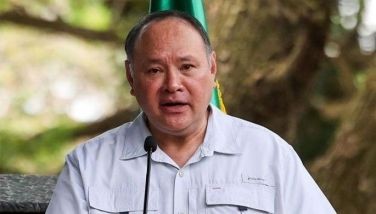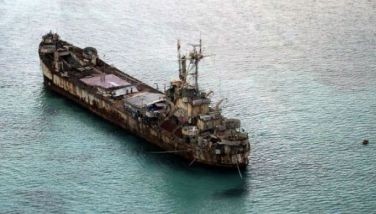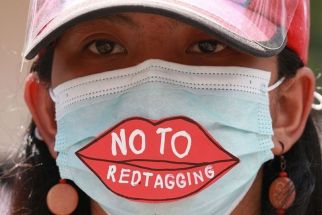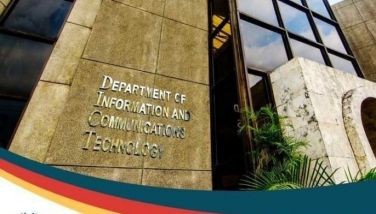Marcos: Philippines must build 'stronger' communities to prevent repeat of Yolanda destruction
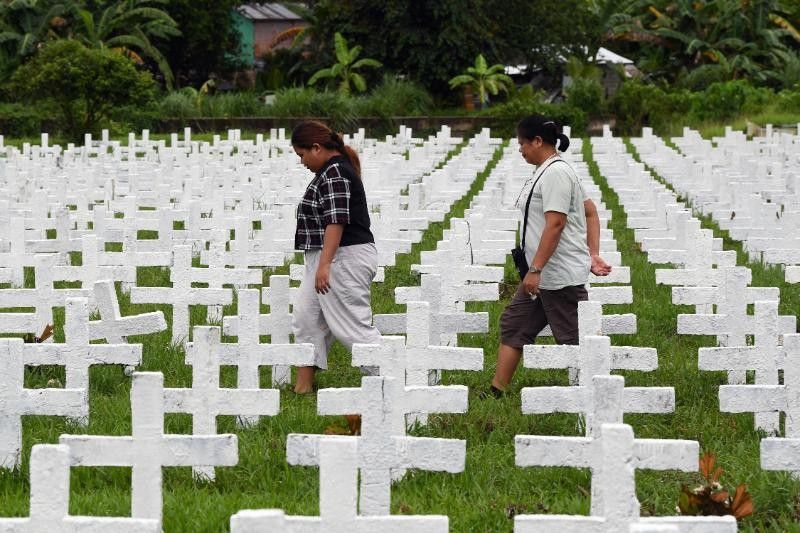
MANILA, Philippines — The Philippines needs to build “stronger and more resilient communities” that can withstand the impacts of the climate crisis, President Ferdinand “Bongbong” Marcos Jr. said Wednesday as the country marks the 10th anniversary of Super Typhoon Yolanda.
Scientists have long warned that climate change is making storms more destructive. Yolanda, also known as Haiyan, is one of the strongest storms ever recorded, killing more than 6,000 people and forcing millions into displacement.
Marcos, who was in Tacloban to commemorate the victims and pay tribute to those who helped rebuild the city, stressed that climate change should be a “vital component” of national policies.
“Be assured that the government is always striving to ensure that such tragedies of this magnitude will be avoided and will be adapted to,” he said.
According to the chief executive, the government continues to build disaster-resilient evacuation centers and emergency operation centers, and put in place more centralized and efficient early warning systems and disaster response strategies.
He also called on the public to collaborate with the government in “bolstering our country’s preparedness, recovery and resilience so we can overcome whatever storms we will face.”
In a video message, Vice President Sara Duterte said that “it is crucial that we learn from the lessons of the past and take proactive steps to prevent such catastrophic events from happening again.”
Proactive spending of disaster funds
A new study of humanitarian and development organization Oxfam Pilipinas found that local government units tend to spend their 30% quick response funds in response to actual disasters, but they are less inclined to invent a substantial portion of the 70% disaster preparedness and mitigation fund.
“It will be better if local governments proactively utilize their 70% mitigation or preparedness funds that do not require a declaration of state of calamity instead of merely expending their 30% QRF when disaster strikes,” Oxfam said.
The report emphasized how anticipatory action has reduced vulnerabilities and strengthened the capacity of communities to manage emergencies and protect their assets. This includes the disbursement of preemptive cash assistance and asset protection through crop and asset insurance before any hazard strikes.
“Without any concrete plan of action to prevent the causes of stronger storms and to improve our disaster response, then communities are rebuilt so they can be battered by typhoons again,” said Fara Diva Gamalo, the Eastern Visayas convenor of the Philippine Movement for Climate Justice.
Oxfam also urged the government to prioritize the nuanced and differentiated needs of women, girls, persons with disabilities, indigenous people, the elderly, youth and people of diverse sexual orientations, gender identities, expressions and characteristics, and ensure their active participation in all stages of decision making.
Beyond remembering
In his speech, Marcos thanked the local and international organizations that helped in the rebuilding and recovery of areas hard hit by Yolanda, especially Tacloban.
The chief executive also urged the public not to forget the victims of the storm, especially those who lost their lives and those who remain unaccounted for.
“We must always keep a special place in our hearts for those who we lost, who are unaccounted for… Let them not be unremembered,” Marcos said.
But for Greenpeace Philippines, simply remembering the scale of the storm’s devastation is no longer enough.
“If our government is truly prioritizing climate justice, then it must first place accountability on those responsible for the climate crisis—the oil and gas companies who continue to profit trillions from their dirty business,” Greenpeace campaigner Jefferson Chua said.
- Latest
- Trending

















